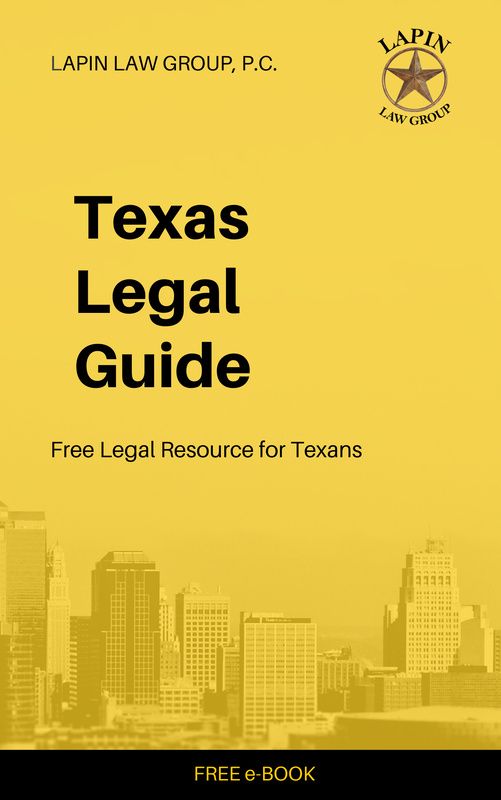The business of wholesaling real estate is often conducted by persons who are not licensed as a real estate broker or as a real estate sales agent. Real estate wholesalers typically seek to find properties that are not suitable, in their present condition, for listing on a multiple listing service (MLS) and which are not suitable for sale at a retail price.
Once a real estate wholesaler locates a distressed property, the wholesaler, who deals directly with the property owner, attempts to negotiate the terms of a purchase contract or an option contract.
After entering into a real estate purchase contract or a real estate option contract with the property owner, the real estate wholesaler will then “sell” the contract to someone else. The person who buys the wholesaler’s contract may be a “rehabber,” someone who fixes-up dilapidated properties and then resells them, either to consumers or to other investors.
Historically, Texans (as well as other Americans) could freely buy and sell rights in real estate purchase contracts and real estate option contracts. That is, they could freely engage — without a real estate license — in the business of real estate wholesaling.
On September 1, 2017, however, the right to freely engage in the business of real estate wholesaling — in Texas — was diminished. As explained below, the extent to which that right was diminished in Texas is yet to be determined.
Senate Bill 2212 (SB 2212) amended the Texas Occupations Code, by adding section 1101.0045, effective September 1, 2017, which, in relevant part, states:
Once a real estate wholesaler locates a distressed property, the wholesaler, who deals directly with the property owner, attempts to negotiate the terms of a purchase contract or an option contract.
After entering into a real estate purchase contract or a real estate option contract with the property owner, the real estate wholesaler will then “sell” the contract to someone else. The person who buys the wholesaler’s contract may be a “rehabber,” someone who fixes-up dilapidated properties and then resells them, either to consumers or to other investors.
Historically, Texans (as well as other Americans) could freely buy and sell rights in real estate purchase contracts and real estate option contracts. That is, they could freely engage — without a real estate license — in the business of real estate wholesaling.
On September 1, 2017, however, the right to freely engage in the business of real estate wholesaling — in Texas — was diminished. As explained below, the extent to which that right was diminished in Texas is yet to be determined.
Senate Bill 2212 (SB 2212) amended the Texas Occupations Code, by adding section 1101.0045, effective September 1, 2017, which, in relevant part, states:
|
Sec. 1101.0045. EQUITABLE INTERESTS IN REAL PROPERTY.
(a) A person may acquire an option or an interest in a contract to purchase real property and then sell or offer to sell the option or assign or offer to assign the contract without holding a license issued under this chapter if the person: (1) does not use the option or contract to purchase to engage in real estate brokerage; and (2) discloses the nature of the equitable interest to any potential buyer. (b) A person selling or offering to sell an option or assigning or offering to assign an interest in a contract to purchase real property without disclosing the nature of that interest to a potential buyer is engaging in real estate brokerage. |
Section 1101.0045 can reasonably be interpreted in at least two very different — and opposite — ways.
First, section 1101.0045 can be interpreted to mean that a real estate wholesaler’s failure to disclose the equitable nature of the rights being sold will, henceforth, be deemed to be the brokerage of real estate (for which a real estate license is required) and that disclosure alone is all that a real estate wholesaler must do to avoid violating this law.
In other words, according to this interpretation, a real estate wholesaler need only disclose and, after disclosure, may conduct “business as usual.” This is the simple reading of the law and, indeed, is the explanation of the law which was given by the author of this legislation. The courts, however, are free to disregard the author’s explanation.
Alternatively, section 1101.0045 can be interpreted to mean that although a failure to disclose will certainly constitute the brokerage of real estate, and thereby bring an unlicensed real estate wholesaler within the reach of the statute, disclosure alone is not sufficient to protect the unlicensed wholesaler.
However, if disclosure alone is not enough to protect the unlicensed wholesaler, what else is required? Answer: to “not use the option or contract to purchase to engage in real estate brokerage,” which is the first prong of the two-prong test of section 1101.0045(a)(1).
But that, you may say, just delays the question. What does it mean to “engage in real estate brokerage”?
The statutory definition of what constitutes “real estate brokerage” is a bit lengthy, but the short answer is that brokering real estate means selling property: (a) that one does not own, (b) for a fee or other thing of value.
There is absolutely no dispute that real estate wholesalers expect to be paid for their efforts, which, of course, is a completely legitimate expectation.
Thus, the only question that remains is whether a real estate wholesaler “owns” the property being sold. The short, but not necessarily easy, answer is that the wholesaler “owns” an “equitable” property right in the real estate contract that is being sold, but clearly does not own the legal rights associated with the property.
Whether the Texas courts will decide that a real estate wholesaler sells “property” that the wholesaler “owns” or does not “own” is, currently, an open question. As courts and judges have often said about various legal issues, this is “a question on which reasonable minds could differ.” Translated, there are plenty of employment opportunities in this statute for Texas lawyers.
Perhaps one clue to answering the question of how the Texas courts, in a quest to reconcile the different parts of this statute, might answer the question of whether a real estate wholesaler “owns” what is being sold, is to look at the penalties for violation of section 1101.0045.
The most frequently seen penalty throughout this statutory scheme is monetary: no less than, but up to 3 times the profit realized by the wholesaler.
If we assume, for the sake of discussion, that the Texas courts will rule that disclosure alone is insufficient to bring a non-licensed real estate wholesaler into compliance with the statute, and that wholesalers do not own what they are selling, then it would not be surprising if the Texas courts were to hold that an unlicensed real estate wholesaler violates the statute only if the wholesaler is paid a fee. In other words, “No Fee = No Brokerage.” And, of course, 3 times $0.00 is $0.00.
Section 1101.0045 does not apply to licensed real estate brokers (sales agents may not lawfully work independently from their sponsoring broker), nor does it apply to attorneys (who are statutorily exempt from the real estate licensing statute).
First, section 1101.0045 can be interpreted to mean that a real estate wholesaler’s failure to disclose the equitable nature of the rights being sold will, henceforth, be deemed to be the brokerage of real estate (for which a real estate license is required) and that disclosure alone is all that a real estate wholesaler must do to avoid violating this law.
In other words, according to this interpretation, a real estate wholesaler need only disclose and, after disclosure, may conduct “business as usual.” This is the simple reading of the law and, indeed, is the explanation of the law which was given by the author of this legislation. The courts, however, are free to disregard the author’s explanation.
Alternatively, section 1101.0045 can be interpreted to mean that although a failure to disclose will certainly constitute the brokerage of real estate, and thereby bring an unlicensed real estate wholesaler within the reach of the statute, disclosure alone is not sufficient to protect the unlicensed wholesaler.
However, if disclosure alone is not enough to protect the unlicensed wholesaler, what else is required? Answer: to “not use the option or contract to purchase to engage in real estate brokerage,” which is the first prong of the two-prong test of section 1101.0045(a)(1).
But that, you may say, just delays the question. What does it mean to “engage in real estate brokerage”?
The statutory definition of what constitutes “real estate brokerage” is a bit lengthy, but the short answer is that brokering real estate means selling property: (a) that one does not own, (b) for a fee or other thing of value.
There is absolutely no dispute that real estate wholesalers expect to be paid for their efforts, which, of course, is a completely legitimate expectation.
Thus, the only question that remains is whether a real estate wholesaler “owns” the property being sold. The short, but not necessarily easy, answer is that the wholesaler “owns” an “equitable” property right in the real estate contract that is being sold, but clearly does not own the legal rights associated with the property.
Whether the Texas courts will decide that a real estate wholesaler sells “property” that the wholesaler “owns” or does not “own” is, currently, an open question. As courts and judges have often said about various legal issues, this is “a question on which reasonable minds could differ.” Translated, there are plenty of employment opportunities in this statute for Texas lawyers.
Perhaps one clue to answering the question of how the Texas courts, in a quest to reconcile the different parts of this statute, might answer the question of whether a real estate wholesaler “owns” what is being sold, is to look at the penalties for violation of section 1101.0045.
The most frequently seen penalty throughout this statutory scheme is monetary: no less than, but up to 3 times the profit realized by the wholesaler.
If we assume, for the sake of discussion, that the Texas courts will rule that disclosure alone is insufficient to bring a non-licensed real estate wholesaler into compliance with the statute, and that wholesalers do not own what they are selling, then it would not be surprising if the Texas courts were to hold that an unlicensed real estate wholesaler violates the statute only if the wholesaler is paid a fee. In other words, “No Fee = No Brokerage.” And, of course, 3 times $0.00 is $0.00.
Section 1101.0045 does not apply to licensed real estate brokers (sales agents may not lawfully work independently from their sponsoring broker), nor does it apply to attorneys (who are statutorily exempt from the real estate licensing statute).
Lapin Law Group is Your Real Estate and Investor-Friendly Texas Law Firm
|
For information on real estate legal services that are available through Lapin Law Group, watch our popular video below.
|
Learn how you can have a Lawyer Available Whenever to review your legal documents & answer your legal questions. Watch our popular video below.
|
GET A FREE e-BOOK
Disclaimer
The information contained in this publication is provided by Lapin Law Group, P.C., for informational purposes only and, shall not constitute legal advice or create an attorney-client relationship. The laws and interpretation of laws discussed herein may not accurately reflect the law in the reader’s jurisdiction. Do not rely on the information contained in this publication for any purpose. If you have a specific legal question, please consult with an attorney in your jurisdiction who is competent to assist you.
Lapin Law Group, with its principal office in the Dallas-Fort Worth Metroplex, serves all 254 Texas counties.
Lapin Law Group, with its principal office in the Dallas-Fort Worth Metroplex, serves all 254 Texas counties.



